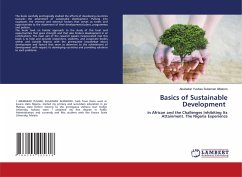This book should be catalogued as belonging to the canon of Liberian studies. Among several of its objectives, the book seeks to expand the scope of traditional stakeholder theory as it applies to the operations of firms in Liberia. In fact, one should essentially view this effort as geared at creating a tool in the empirical armory of a much more critical dimension of stakeholder theory. Thus, the book extols the virtue of collaboration and mutual reciprocity in social practices as a central pillar in the theory of organizational change and leadership ethics. In this broader context, the book proposes the collaboration hypothesis and the acceleration principle. It is suggested that the collaboration hypothesis is built on insights from various fields and theoretical traditions. These include micro-foundations, African moral philosophy, and Habermas's theory of communicative action. The book concludes that the collaboration hypothesis and other related findings and postulations relative to the challenges of managing change in organizations are subject to further empirical investigations.
Bitte wählen Sie Ihr Anliegen aus.
Rechnungen
Retourenschein anfordern
Bestellstatus
Storno








